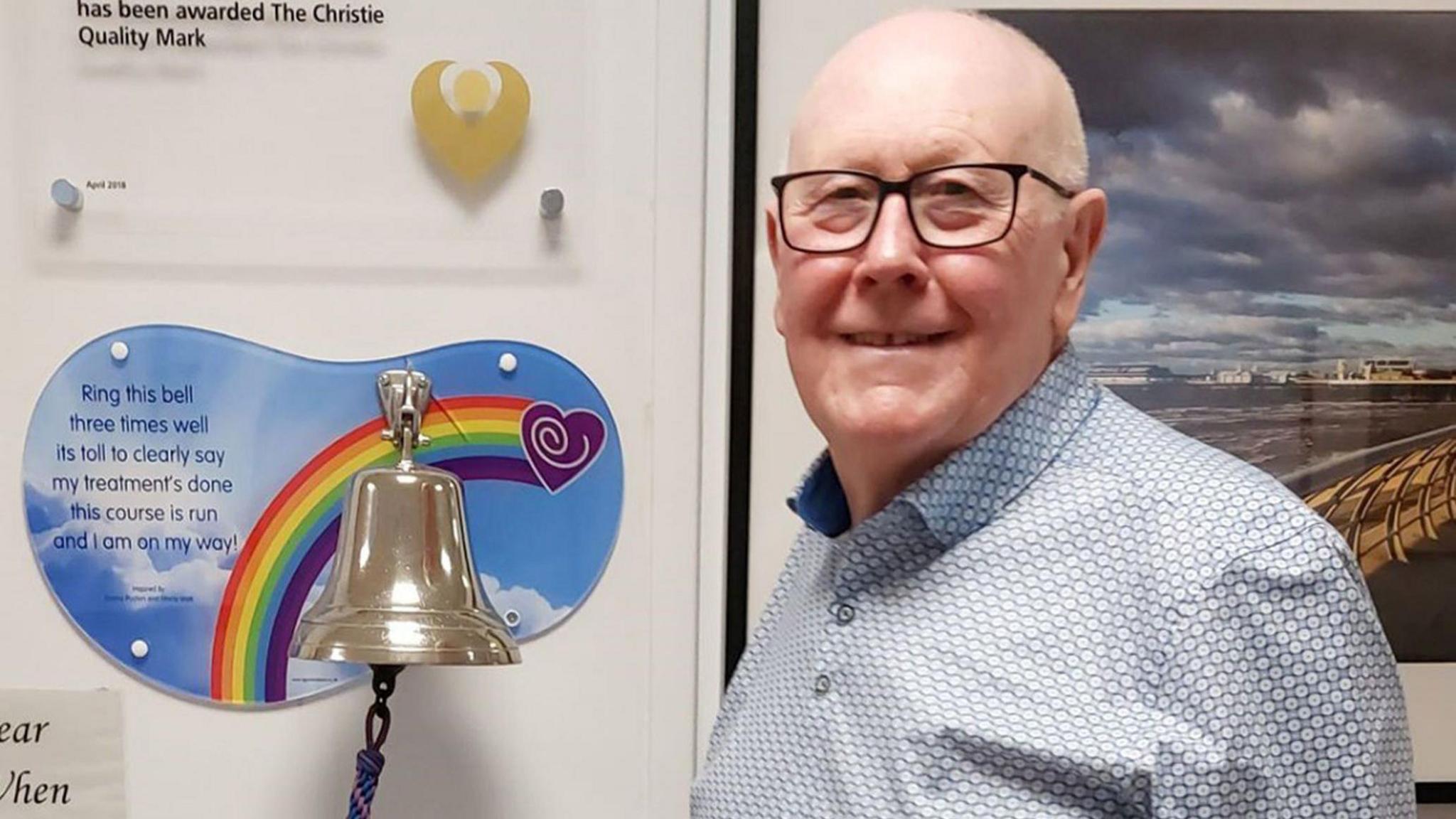Ex-Man Utd scout cancer-free in medical trial success

Tom Critchley was a corporal in the Royal Marines as well as carving out a career spotting sporting stars.
- Published
A former Manchester United football scout has been spared invasive surgery and given the all-clear thanks to a new cancer trial.
Tom Critchley, 76 , went to The Christie hospital in Manchester after being diagnosed with early-stage rectal cancer last April.
The trust offered him the chance to join the Aphrodite trial, investigating whether a higher dose of radiotherapy increases the chance that rectal cancer can be treated without surgery.
Mr Critchley, a grandfather-of-three, said he was happy to partake in a medical trial in the knowledge it could help others too.
The study may also avoid the need for patients to use a stoma.
Mr Critchley underwent 28 radiotherapy sessions as well as taking a chemotherapy tablet twice a day.
He lost his wife Eileen to cancer when she was 54. She was diagnosed with pancreatic cancer and died just five weeks later.
He explained he chose to do the trial because “it could help me, but it will also help someone else”.
He said: "I would say to people, don't be frightened of taking a chance on a clinical trial because the answer to your problem could be within that trial.
"As it happens, the treatment has worked amazingly. There are no signs of cancer - it's gone completely."
Mr Critchley, from Astley near Leigh in Greater Manchester, spent 20 years working with Manchester United and eight with Bolton Wanderers.
After developing bowel cancer symptoms, he said he went to the doctor straight away.
Medics offered to lower his chemotherapy dose, after some side-effects such as peeling skin, but Mr Critchley told them he could manage for the 28 days of treatment.
'Modern techniques'
The Aphrodite trial is led by Professor Simon Gollins from the Shrewsbury and Telford Hospital NHS Trust, and Dr Ane Appelt from the University of Leeds and Leeds Teaching Hospitals NHS Trust.
Dr Appelt, who has been supported by a fellowship from Yorkshire Cancer Research, said: "With modern high-tech radiotherapy techniques we are able to deliver a much higher dose of radiotherapy to the cancer.
"But we need the Aphrodite trial to determine if that will also lead to more patients being cured of their cancer."
Dr Appelt added the trial was "completely dependent" on patients like Mr Critchley.
The trial is still recruiting patients and is being managed by the clinical trials research unit in Leeds.